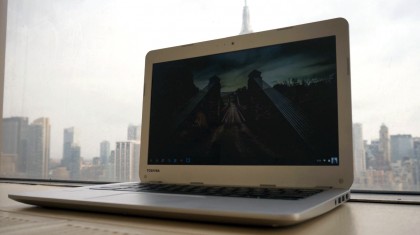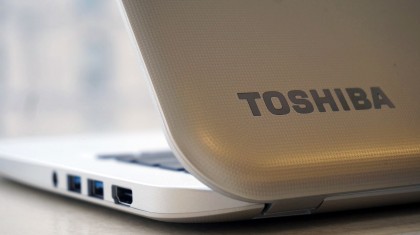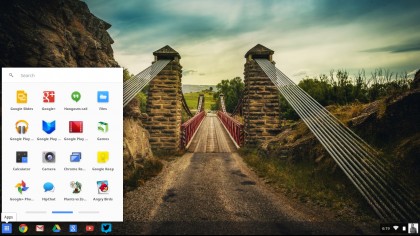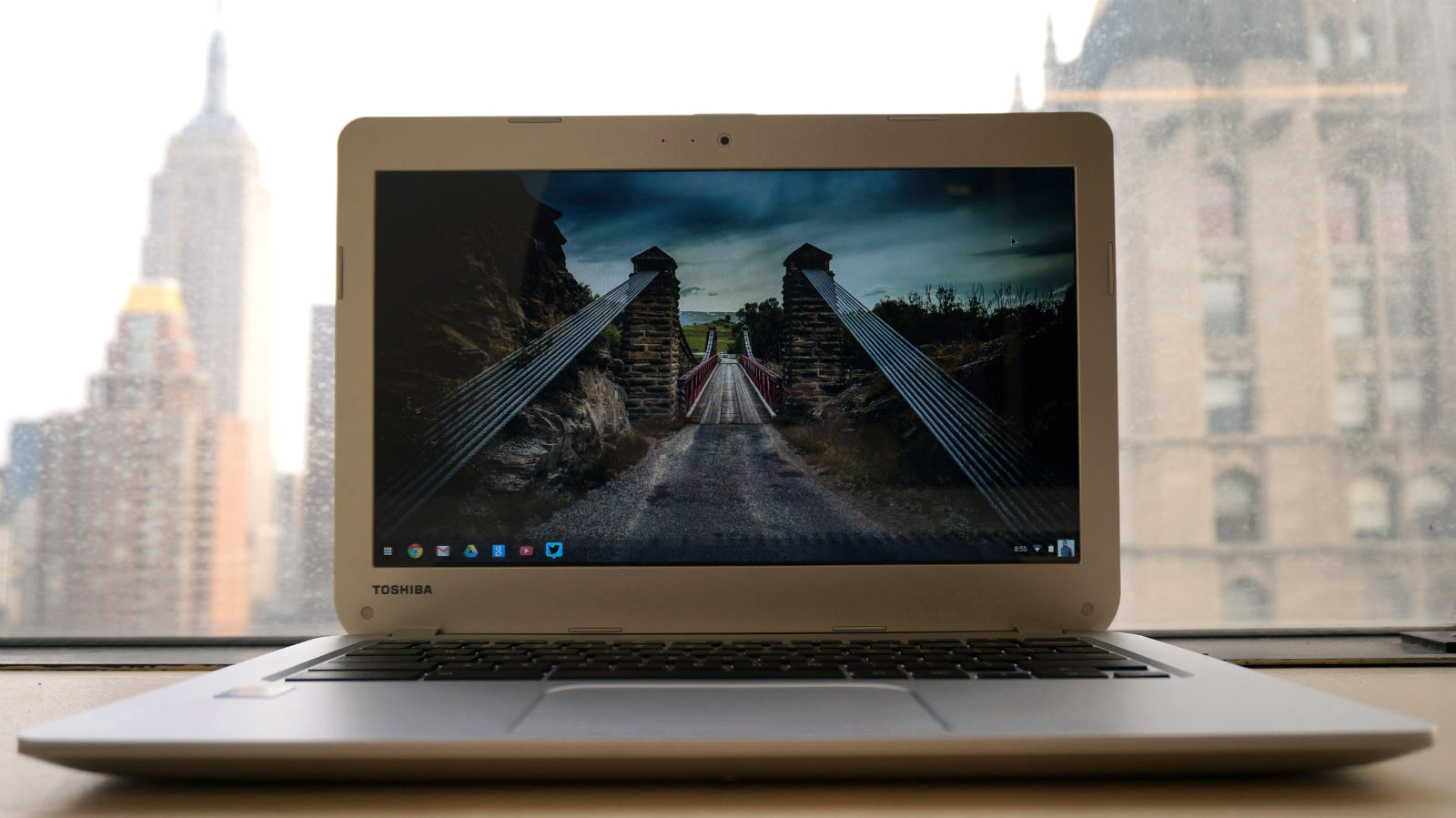TechRadar Verdict
The 13.3-inch Toshiba Chromebook offers one of the best Chrome OS experiences for the price of some 11-inch variants.
Pros
- +
Excellent value
- +
Fantastic inputs
- +
Long battery life
Cons
- -
Substandard screen
- -
Poor multitasking performance
Why you can trust TechRadar
Chromebooks are a bundle of contradictions, budget laptops that are both weird and brilliant, underpowered yet potent. They pack basic computing functionality into the Chrome OS, a web browser masquerading as an operating system. The search giant's OS and mobile computer spec are just a few years old, but companies like HP, Samsung and Acer already have several models on the market.
The other firms may have a headstart but the Toshiba Chromebook has come out swinging, the first with a larger 13.3-inch screen, plus two USB 3.0 ports.
Size and speedy ports aside, the Toshiba Chromebook is nearly identical to its competitors on paper. Looks, however, are a different story.
Design
Save for the Google branded HP Chromebook 11, these frugal Google machines are largely lacking in personality. The 11.6-inch Acer C720 Chromebook is a nondescript merging of gray and black plastic pieces. The 14-inch HP Pavilion 14 Chromebook rocks smudge-prone glossy plastic all over.
An all-plastic, silver-gray frame, the Toshiba Chromebook sports a pocked surface on its lid and underside. Toshiba hasn't pulled off anything extraordinary here, but rather employed its trademark budget design from its Windows 8 machines. While it generally looks bland next to slightly more stylish low-price laptops, it stands out among the largely drab Chromebook lineup.
A chrome Toshiba logo and a glossy Chrome logo make the final touches on the outside. Opening the lid reveals a rather plain-looking keyboard deck and bezel, but it's the matte plastic that I appreciate most throughout. Not only does it give a slightly soft shine, it's almost impervious to fingerprints and smudges. It's details like this that go a long way in design.

An answer for everything
If you're new to the Chrome OS, it might surprise you how much you can get done just working out of Google's browser, nearly everything you'd normally do on a Windows or Mac machine. Granted, it all happens at the mercy of your Wi-Fi connection (like the MacBook Air, there's no ethernet port on this Chromebook), but a sub-$300 laptop that can do almost everything a $1,000-plus notebook can remains impressive.
Full disclosure: I'm already a big time Googler. Gmail is my email of choice, and I left Microsoft Office for Google Drive years ago. Let's just say I didn't need much evangelizing on Google Services to understand the Chromebook's appeal.

But what seals the deal for new Chrome OS users is how many of your daily apps have fully capable web versions, personal and work essentials like HipChat, TweetDeck and Spotify. However, some of the biggest names, like Photoshop CS5 have no web client, so you'll need to warm up to a web-based alternative to fill the gaps (Pixlr). To get all your basic functionality can take some resourcefulness, but it's certainly possible.
A native FTP client and VPN are the biggest gaps for professional productivity on Chrome OS, as well as . Beyond that, Chrome OS has an answer for every situation a Windows or Mac user could throw at it, as far as app support is concerned. Now, let's see how Toshiba's machine stacks up against the rest of the Chromebook pack.

Joe Osborne is the Senior Technology Editor at Insider Inc. His role is to leads the technology coverage team for the Business Insider Shopping team, facilitating expert reviews, comprehensive buying guides, snap deals news and more. Previously, Joe was TechRadar's US computing editor, leading reviews of everything from gaming PCs to internal components and accessories. In his spare time, Joe is a renowned Dungeons and Dragons dungeon master – and arguably the nicest man in tech.

